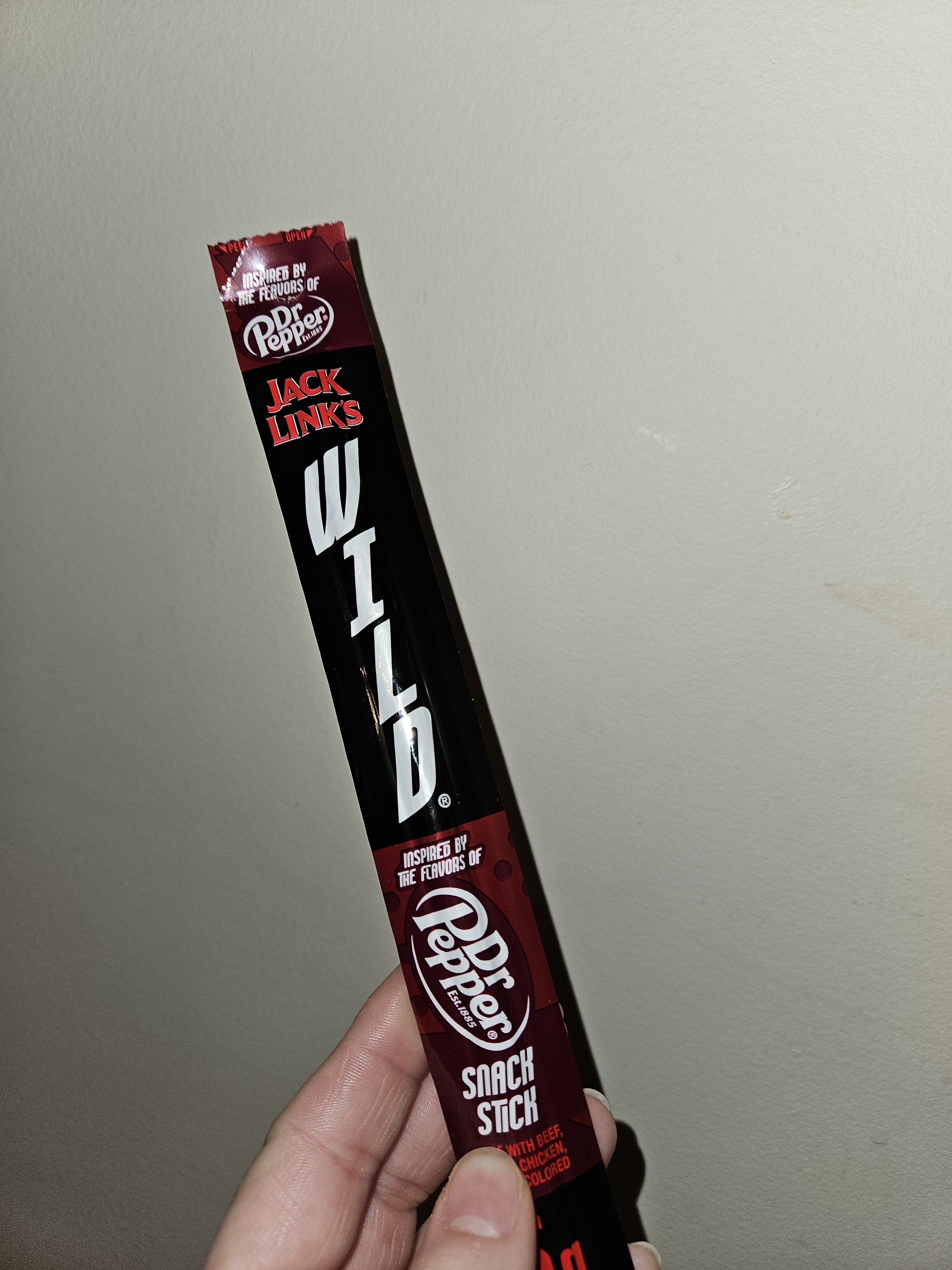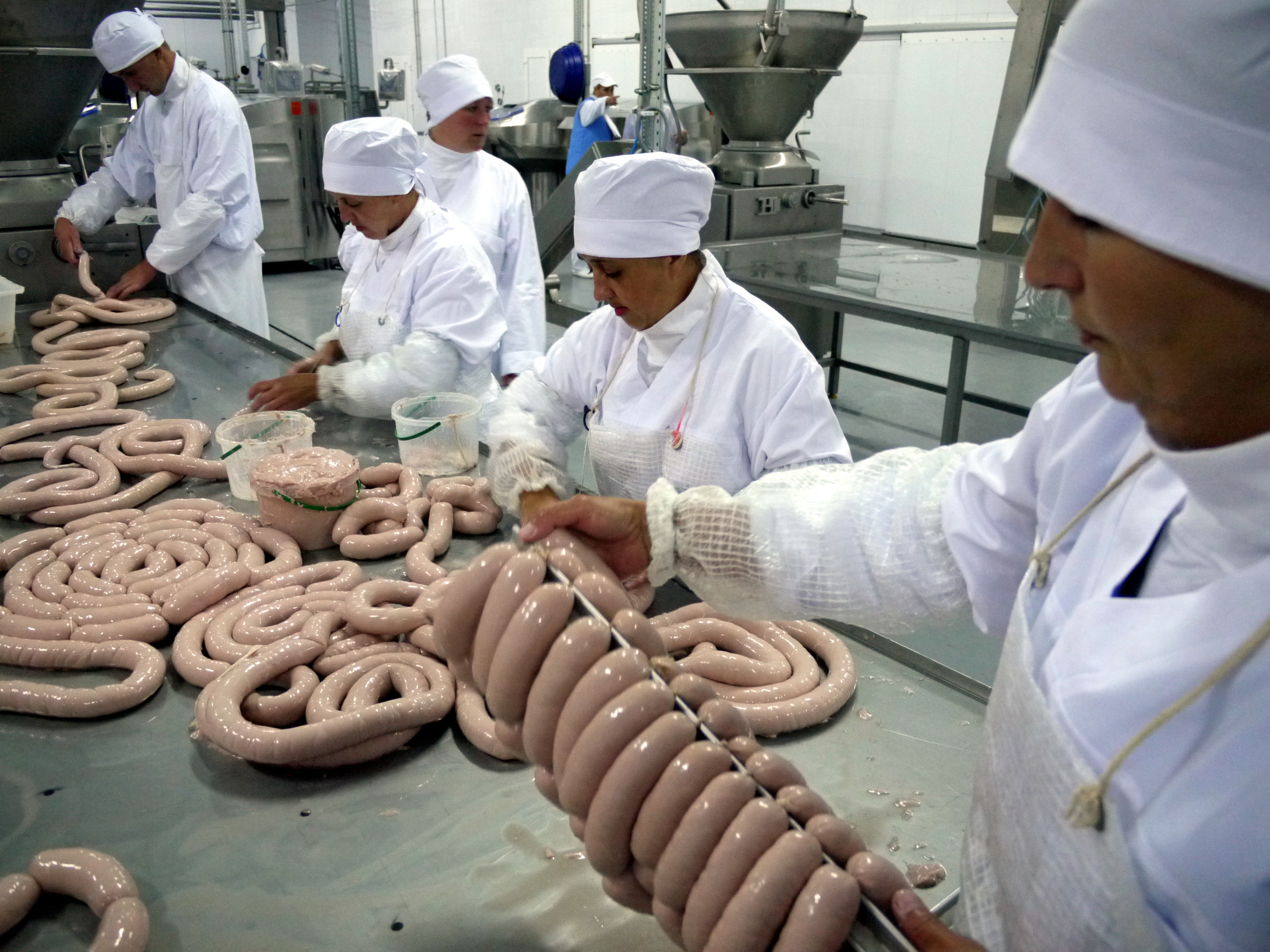- cross-posted to:
- [email protected]
- cross-posted to:
- [email protected]
Russian companies are reported to be increasingly using a food additive that is banned in the country—“meat glue” or transglutaminase—to cut production costs.
 rofl how do those sanctions taste ruzzians??
rofl how do those sanctions taste ruzzians??
Transglutaminase was also banned by the European Union in 2010
It has been banned for use in food production in Russia since 2020
It is still permitted for use in the United States.

It is still permitted for use in the United States.
Lol, there is it. Peak propaganda title.
Smugly reported as if amerikkkans don’t have poor food standards, with everything full of corn syrup, feces , bug husks and red 40.
>It is still permitted for use in the United States.This article dunked itself.
A few moments after I started reading, I knew in my heart that fact would be buried in the article somewhere further down. Wasn’t disappointed.
I can’t even think of anything clever, it’s just too on the nose.
I actually don’t mind the bug husks, crunchy proteins

It’s not a good sign when you sink to the American food standards.
I would definitely describe any country as “struggling” with their food system if they are resorting to American food standards.
Wow, they’re just like us, let’s laugh at them


from the wiki page:
Transglutaminase is also used in molecular gastronomy to meld new textures with existing tastes. Besides these mainstream uses, transglutaminase has been used to create some unusual foods. British chef Heston Blumenthal is credited with the introduction of transglutaminase into modern cooking.
Wylie Dufresne, chef of New York’s avant-garde restaurant wd~50, was introduced to transglutaminase by Blumenthal, and invented a “pasta” made from over 95% shrimp thanks to transglutaminase.
a “pasta” made from over 95% shrimp
Man-made horrors beyond my comprehension
Last when i checked shrimps were made by other shrimps
99% of molecular cuisine “chefs” are just unimaginative hacks and nerds who think putting a science experiment without any reference to the signifiers of food, territory and taste on a plate is the height of cuisine.
These people looked at what Ferran Adrià was doing and missed the point entirely, and this is just one of the examples.
Fuck molecular cuisine, it should’ve died in 2009.
I know a guy who used to be a driver for Heston and he told me Heston’s secret to the perfect steak. It’s was the dumbest thing I’ve ever heard. Cook the steak for seventeen seconds per side and flip some arbitrary amount of times.
So basically, cooking a steak the way anyone else would, but while being really pedantic about meaningless specifics like the exact number of seconds to cook per side
God I can’t stand those “the perfect way to do X”. It’s the ultimate objectification of an inherently relational experience, the one of making, tasting and sharing food.
Entirely agree. I bet Heston’s steak is mid at best. My dad cooked the best steak
British chef
What’s next, a celibate frenchman?
invented a “pasta” made from over 95% shrimp thanks to transglutaminase.
I feel like that’s just worse in every way than just cooking the shrimp normally and serving them with real pasta. Even if it wasn’t the big shrimp but like the really tiny bug sized ones I imagine you’d be better off making like little cubes of krill loaf and frying that in butter and lemon with lots of garlic and ginger and serving that with pasta in some kind of strong aioli.
That just sounds like a shitty version of fish cakes!
Lmao this really is the best distillation of liberal propaganda.
Evil enemy nation is doing ridiculous and unbelievable thing. Ok so maybe they aren’t actually doing that thing. OK yea I’ll concede we are doing that thing.
The punchline nearly killed me lmaooo
It has been banned for use in food production in Russia since 2020, but is reportedly still easily able to be purchased online.
Transglutaminase was also banned by the European Union in 2010, according to Food Safety News. It is still permitted for use in the United States.
“meat glue”
So, patte?
Mmmm, ground offal. 🤤 (Unironic)
Have you ever seen the big turkey breast hunks at the deli section of the grocery store? This is what holds all that meat together.
Meat glue (Transglutaminase) is a heavily used food additive in the US and is GRAS (generally recognized as saf). Manufacturers don’t need to report in their ingredients because supposedly the enzyme deactivates when it heats up. I was playing around with it in bread making to increase the amount of gluten in bagels. I stopped when I read some research papers that the health effects were not clearly understood and some people have raised some alarm bells that it might not be.
We covered this in class once… The reason why it’s allowed in the US and forbidden in Europe is because the burden of proof works differently: in the US everything is allowed until you prove a food additive is harmful, while in Europe anything that’s not been proven to be 100% safe cannot be added to food, because food policy in the EU is supposed to follow a precautionary principle.
I can’t think of many phrases that are more stomach-churning than the words “meat glue”. It gives me a physical feeling of revulsion just to say it in my mind, fucking gross.
I am not sure, I think it is just fancy gellatin. Just like, a protein that you normally don’t see a bunch of at me time that has cool effects.
Yeah, it’s just that the words “meat” and “glue” don’t feel to me like they belong together, somehow. It feels icky in my brain lol
This is just like fancy gellatin right? From the sound of it this doesn’t really seem bad at all.
It is bad because bad country uses it because they’re on the verge of collapse and are struggling to feed people
Whereas our good country uses it just because, people love their innovative meat products


It was honestly the worst thing I have ever put in my mouth
Like, I regret palming it and bringing it into the gas station bathroom
I love stealing snacks
Hell yeah, just don’t steal these
Yeah it’s a chemical compound our bodies produce. Like a lot of these things, the risk has more to do with the industrial food processing associated with the chemical rather than the chemical itself.






















